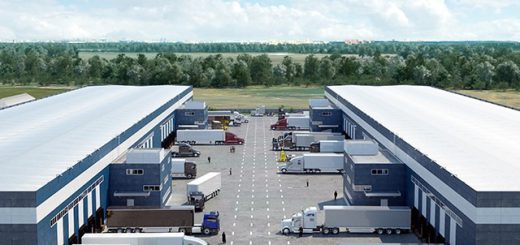Can Eco-Friendly Transportation Propel India Towards Its 2070 Net Zero Carbon Goal?
Eco-Friendly Transportation Climate change poses a daunting challenge to countries worldwide, necessitating bold action to limit global warming. In response, governments are setting ambitious goals to achieve net-zero carbon emissions. Among these is India’s pledge to reach net-zero emissions by 2070, a target requiring concerted effort across various sectors contributing significantly to greenhouse gas (GHG) emissions. One critical area is transportation, specifically the burgeoning heavy-duty truck industry. With road freight traffic growing exponentially, green transportation is a vital strategy for realizing India’s net-zero vision while ensuring sustainable development.
Road Freight Expansion and Carbon Footprint
Currently, India boasts a $4 trillion GDP set to expand further, reaching $5 trillion by 2027 according to a PHDCCI report. Rapidly increasing consumer demand drives expansion in the freight transportation sector, now handling roughly 4.6 billion metric tons annually. Resultant transport demands amount to 2.2 trillion tonne-km, carrying a price tag of INR 9.5 lakh crore. Fueling this growth are urbanization, population increases, soaring e-commerce sales, and improved living standards—trends anticipated to push road freight to 9.6 trillion tonne-km by 2050.
Unfortunately, the logistics sector accounts for nearly 14% of India’s overall CO2 emissions, primarily due to road transport. Diesel-powered heavy- and medium-duty trucks shoulder the majority of this burden, generating 90% of transportation-related emissions despite representing just 70% of domestic freight demand. Given these figures, electrifying or otherwise “greening” trucks are paramount if India hopes to meaningfully address its carbon footprint.
Enter Green Trucks
Aimed at curbing pollution and fostering sustainability, numerous international projects promote eco-friendly trucking solutions employing alternative fuels and advanced technologies to improve fuel efficiency. Countries increasingly embrace greener alternatives amidst mounting concerns regarding traditional fuel sources’ ecological consequences and climbing operational expenses.
India follows suit, bolstering green freight movements via liquified natural gas (LNG)-fueled trucks, among other innovations. Compared to diesel counterparts, LNG trucks emit fewer harmful substances and greenhouse gasses, better aligning with national commitments toward minimizing environmental harm and combatting climate change. Additionally, LNG offers superior energy density versus compressed natural gas (CNG), allowing greater vehicular ranges ideal for lengthy haulage duties presently reliant on diesel powerplants.
To capitalize on this potential, the government seeks to convert at least one million diesel trucks to LNG by 2035. To expedite this process, officials aim to establish 1,000 LNG refilling stations alongside primary highways within three years and boost LNG production capacities by 17 million tons over the upcoming twelve months.ns
Also Read:- Revfin, Bluwheelz, Kalyani Powertrain Join Forces for Retrofitted E-Trucks
Zero-Emission Trucks: Pathway to Sustainable Future
Recognizing the need for comprehensive strategies encompassing multiple approaches, the Government of India released a 2023 technical blueprint detailing steps leading up to large-scale zero-emission truck (ZET) integration. Proposed measures include pinpointing priority trucking routes for pilot programs involving some 60-70 electric trucks over the subsequent half-decade.
Adopting ZETs promises several benefits, notably reduced carbon emissions relative to diesel equivalents, quieter operation, and decreased dependency on fossil fuels. Moreover, early studies indicate successful implementation may slash CO2 emissions by 46% come 2050, corresponding to between 2.8-3.8 gigatons saved since 2021. However, substantial investment remains necessary before widescale ZET adoption becomes feasible.
Conclusion
Addressing climate change requires cooperation from all sectors, especially those heavily reliant on carbon-intensive processes. By prioritizing green transportation, India demonstrates leadership in tackling environmental issues while simultaneously improving overall industrial competitiveness. Although challenges lie ahead, embracing novel technological advancements and renewable energy sources represents essential progress toward a carbon-neutral future by 2070.
Reference By:- https://cxotoday.com/




Recent Comments